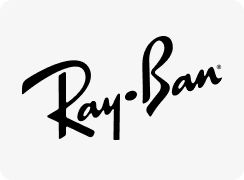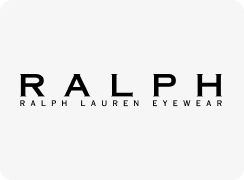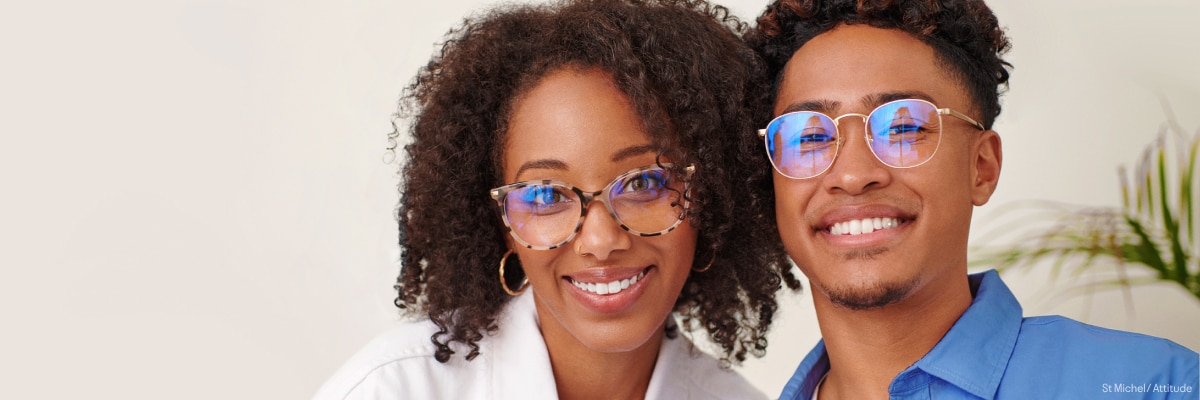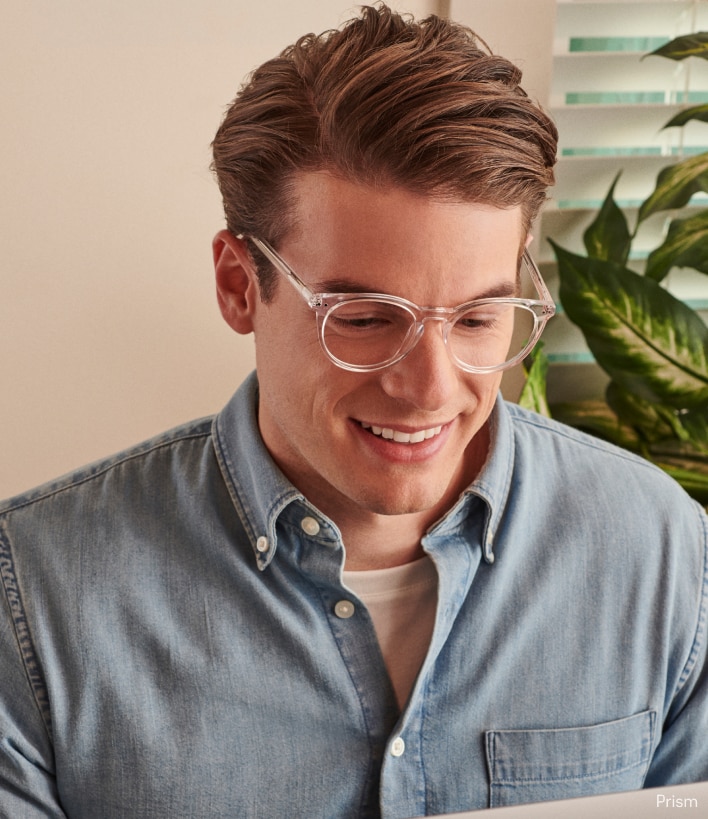In the EBD Blog
Blue light glasses are a relatively new option that has come to the eyewear market. People all over the world are now using screens on smartphones, tablets, and monitors much more these days. The COVID-19 pandemic has increased screen usage even more as many people have been forced to work from home, leading to more hours on computers or other devices all day, every day.
It’s a proven fact that all screens give off a decent amount of blue-violet light. blue-violet light has been shown in some studies to cause visual discomfort.
But, what do blue light glasses actually do? The idea behind them is to filter a certain percentage of the blue-violet light emitted by screens. Prescription lenses are often coated with ultraviolet (UV) light protection, and while this is certainly good as UV light is a type of damaging radiation, UV coating doesn’t prevent blue-violet light from getting to the eyes.
What Do Blue Light Glasses Help With?
As mentioned, the idea behind blue light glasses is to filter a certain percentage of blue-violet light from reaching the eye. Studies vary on the effectiveness of these blue light filtering lenses, but they’re intended to reduce fatigue and visual discomfort. All of these are problems that’ve been found with excessive blue-violet light exposure.
How Do Blue Light Glasses Work?
Now we’ve established what blue light glasses help with, how do they work? Or better yet, do blue light glasses work at all? The lenses are coated with an almost imperceptible yellow tint that filters about 40% of blue-violet light. Since this coating is so light, it’s possible to wear blue light glasses all day without anyone even noticing you’ve got the coating on your lenses. If 40% of blue-violet light filtering isn’t enough, you may have to opt for lenses that are obviously yellow. This’ll provide you with even more blue-violet light filtering power, but may not be the most practical to wear when you’re away from your computer screen since the yellow tint will be so obvious.
Can Blue Light Glasses Cause Headaches?
As long as the prescription is correct and the frame fits you properly, blue light glasses shouldn’t cause headaches. If you start to experience headaches with blue light glasses, you should see an optician or perhaps have your eye care professional double check your prescription to be sure it’s right. If you wear non-prescription blue light glasses and get headaches, it’s a good idea to talk with an optician to see if the frame fits you properly, or perhaps you need prescription light glasses. In that case, you’ll want to schedule an eye exam with your eye care provider.
While studies vary on the overall effectiveness of blue light glasses, on an anecdotal note I’ve had many patients that have tried them and feel they do indeed help with fatigue and visual discomfort. If you spend a lot of time on a screen, it certainly wouldn’t hurt to try a pair and see if they work for you!

















